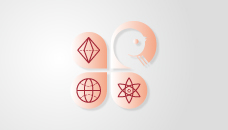LAN Yan, WANG Wu, XU Wen, CHAI Qin-qin, LI Yu-rong, ZHANG Xun. Discrimination of Planting and Tissue-Cultured Anoectochilus Roxburghii Based on SMOTE and Inception-CNN[J]. Spectroscopy and Spectral Analysis, 2024, 44(1): 158
Search by keywords or author
- Spectroscopy and Spectral Analysis
- Vol. 44, Issue 1, 158 (2024)
Abstract

Set citation alerts for the article
Please enter your email address



